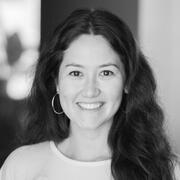When I was a third grade teacher at Quitman County Elementary School in the Mississippi Delta, I was fortunate to work with a school team that prioritized teacher learning. We had professional development workshops most weeks, and our school leaders were committed to providing training on topics like classroom culture, lesson planning, social emotional learning and so much more.
But at the same time, professional learning was often a struggle. We were a small school in a rural community, and though we loved our students, our resources were limited—we lacked time, space and money. Taking time off to attend a conference or workshop elsewhere wasn’t easy because finding a substitute could be difficult. Our principal often designed and led our PD, or a teacher would volunteer to take on that responsibility for no extra pay. We did what we could, but we didn’t have access to the same professional learning opportunities as educators in better-funded or less geographically remote schools. It often felt isolating.
Eight years later, I was still living in Mississippi, still serving as an educator, but now I was traveling all over the country, facilitating professional learning for schools and districts as a part of Learning for Justice. It was meaningful work, but I always had a thought at the back of my mind: Why aren’t teachers in schools like the ones I taught in getting access to these learning experiences? Even though we would offer workshops for little or no cost, I knew there were so many other obstacles. At LFJ, we often hear from educators about these barriers—time, people to cover classes, space to hold trainings, pressures around state testing, competing ideas about what learning should even be happening. The list goes on.
It wasn’t until two years later, as COVID-19 raged, that we did our first workshop specifically for educators in Mississippi. It only happened because we were starting to offer workshops online. Suddenly, so many barriers weren’t barriers anymore. Teachers could log in after school, from their homes. It was beautiful to see these teachers from across my state interact with one another, realizing there were other people who were dedicated to social justice education, and suddenly in community, learning together. The joy and the relief on their faces were palpable.
We often hear from educators who are doing incredible work with their students and in their communities. They are actively diversifying curricula and making sure that history instruction remains honest—even in the face of legislative efforts to restrict conversations about racism—or they are resisting punitive, inequitable disciplinary policies and advocating for restorative, human-centric school culture initiatives. Yet, as these educators push for a more equitable schooling experience, they don’t always feel connected to others who are fostering the same ideals in other contexts. They wonder who else might be doing this work and with whom they can learn and advocate. They wonder if others ever feel alone in the face of resistance. They wonder if a community of like-minded educators exists who can be a resource and a support system.
It was beautiful to see these teachers from across my state interact with one another, realizing there were other people who were dedicated to social justice education, and suddenly in community, learning together.
This work is more sustainable when we share it with others, and LFJ is committed to helping build some of these connections. After attending Let’s Talk, a Learning for Justice virtual workshop, one educator wrote, “The most useful part of this workshop was seeing and hearing from different people across the U.S. I enjoyed being able to practice these strategies in both whole and small group[s].”
In the spring of 2022, LFJ began piloting a new type of learning experience, the Teaching Hard History Professional Learning Cohorts. More than 60 educators from around the country participated in this collaborative learning experience. They met online twice a week for three months to dive deeply into the Learning for Justice Teaching Hard History: American Slavery (THH) framework, learning and unlearning history, preparing for implementation, and sharing insights, resources, strategies, and support. By emphasizing shared learning, THH Professional Learning Cohorts have allowed for more meaningful connections between educators. As one participant shared, “I have grown tremendously more competent and confident as a teacher of hard history. I learned a lot from the outside readings we did and from the facilitators, but I got the most out of my peers sharing their valuable perspectives and pedagogical expertise.”
At Learning for Justice, we believe that young people learn best when they are part of welcoming communities where the ownership of teaching and learning is shared. We also believe that adults learn best in similar conditions. In the next few years, we’ll introduce more cohort models featuring additional topics to engage with LFJ’s vast library of resources.
In all our learning experiences, we’ve tried to replicate that same sense of community I saw in those Mississippi educators. The work of LFJ’s learning and engagement team emphasizes community-building and collective learning. We keep in mind the concept of solidarity, which, as I’ve indicated elsewhere, “not only recognizes difference but also sees power in bringing people who are different in community with one another while working toward a shared goal.” All our LFJ workshops are designed to be interactive and to promote listening, collaboration and shared problem-solving. Participants leave equipped not only with skills, strategies and resources; they also leave with the knowledge that they are not alone.

